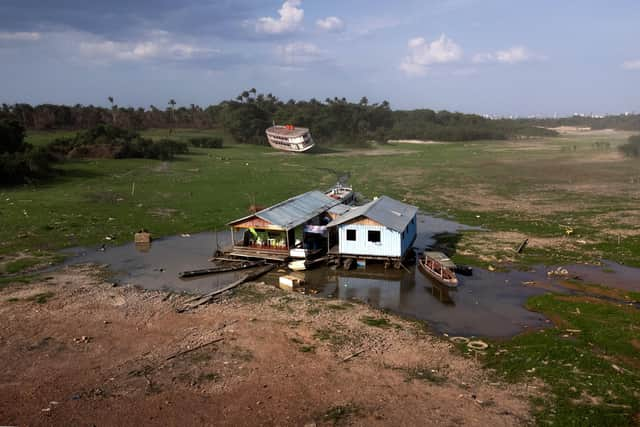Fossil Fuel Non-Proliferation Treaty (FFNPT): Why Scotland should join this growing, global movement – Dr Richard Dixon
The UK has just left the Energy Charter Treaty supposedly on the grounds that it would hold back action to meet climate change targets. The treaty, dating from 1991, allows fossil fuel companies to sue governments over policies they don’t like. France, Germany, the Netherlands and Spain have already left.
Ditching the treaty is great news but campaigners are urging the Scottish Government and MSPs to support another one, which is aimed at phasing out fossil fuels. The failure of the United Nations’ climate talks to produce rapid action has increased interest in a Fossil Fuel Non-Proliferation Treaty (FFNPT).
Advertisement
Hide AdAdvertisement
Hide AdModelled on the Nuclear Non-Proliferation Treaty and similar international agreements on landmines and ozone-depleting chemicals, the concept of an FFNPT was raised by a group of Pacific island nations in 2022. Twelve countries and more than 100 cities and regions, including the City of Edinburgh, have now officially endorsed the idea.


Significant support
The European Parliament voted to support a treaty in the preparations for the 2022 and 2023 climate talks. The idea is also supported by the World Health Organisation, global religious leaders, and more than 2,000 civil society organisations including major international environment groups like Friends of the Earth and WWF, as well as more than half a million individuals.
The most significant recent new country to call for a treaty is Colombia, the largest producer of coal and fourth largest producer of oil in Latin America, and the world’s eleventh largest coal producer. Of course, following the climate talks in the United Arab Emirates last year, every nation is supposedly committed to phasing out fossil fuels. Eventually. As is obvious from the UK’s example, where major expansions of oil and gas production are planned, many nations are not at all serious about this.
The FFNPT would not be about switching off fossil fuels tomorrow. It is about nations working together to phase out fossil fuels in an organised but rapid way. Specifically, the treaty would aim to end new exploration and production of fossil fuels, to run down existing stock piles and production, and to accelerate the transition to renewables in a fair way.
No country left behind
Part of the idea is that nobody wants to go first when it comes to ending the production of fossil fuels, so doing it together provides a safe path forward. Just as discussions about a Just Transition away from fossil fuels in Scotland aim to leave no community and no worker behind, the treaty would aim to leave no country behind.
Global Justice Now has been pressing MSPs and the Scottish Government to sign up to support the treaty. Labour MSP Mercedes Villalba introduced a Scottish Parliament motion supporting the treaty in November which attracted support from Green and SNP MSPs, as well as those from her own party.
With the glacially slow progress of the UN climate talks and the lack of commitment from countries to deliver on even existing promises, a Fossil Fuel Non-Proliferation Treaty could be the way to get countries acting together for the rapid phase out of oil, coal and gas that the world so desperately needs.
Dr Richard Dixon is an environmental campaigner and consultant
Comments
Want to join the conversation? Please or to comment on this article.